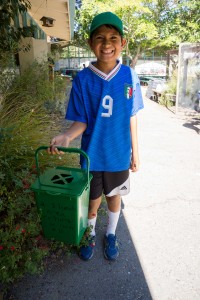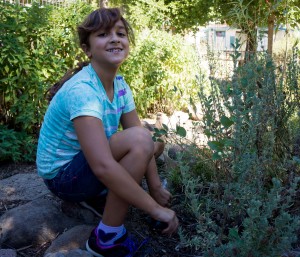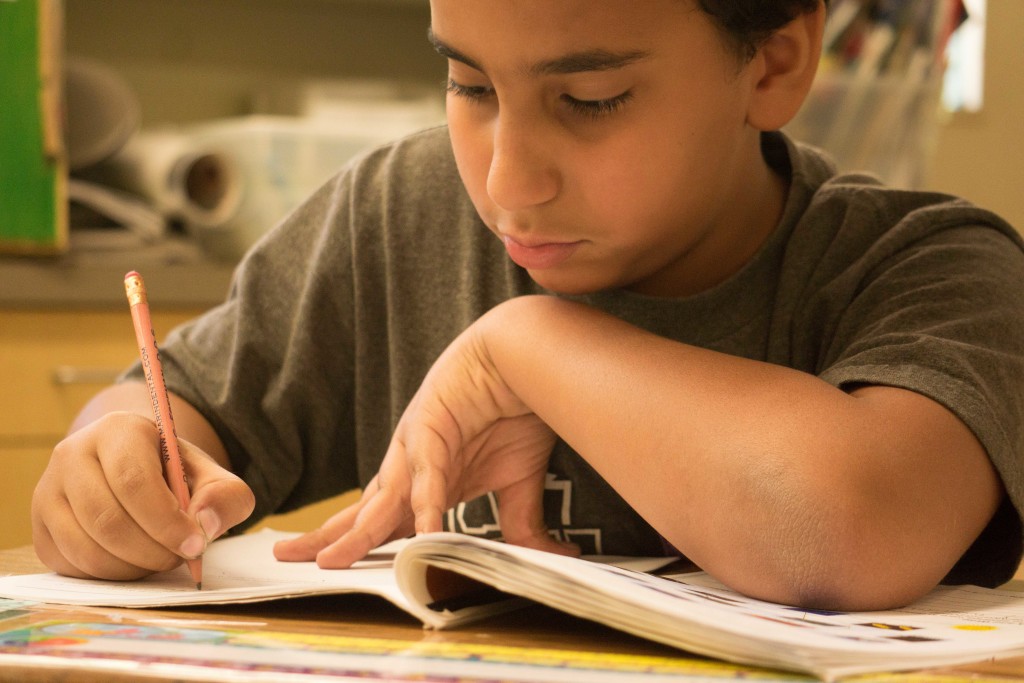 My kids are environmental superstars! There is something very special about teaching students about decomposers in my 4th grade classroom and then watching them excited to be a part of the Green Team. They work very hard teaching other kids how to dispose of their lunches by sorting compost, recycling, and trash. They have a zeal and feeling of responsibility as part of the Green Team. Our town of Fairfax has pledged to be waste-free by 2020, and my students want to be a part of making that happen at our school.
My kids are environmental superstars! There is something very special about teaching students about decomposers in my 4th grade classroom and then watching them excited to be a part of the Green Team. They work very hard teaching other kids how to dispose of their lunches by sorting compost, recycling, and trash. They have a zeal and feeling of responsibility as part of the Green Team. Our town of Fairfax has pledged to be waste-free by 2020, and my students want to be a part of making that happen at our school.
My 4th grade students teach younger students how to compost so that they can show their friends how to properly dispose of their lunches. I never thought that so many kids would volunteer to do this job during their own lunch and recess! The concept of composting is also more real for them since they understand the process so well by learning how it works in my class. The EEI unit Life and Death with Decomposers is perfect for teaching my students about decomposition. Included in the unit are several hands-on experiments, including growing mold on bananas and bread and comparing types of soil. We do follow-up activities in our garden, growing plants in the different soils and observing which soil is best. We also go on a field trip to our water treatment plant to learn about how decomposers break down waste so the water can be released safely back into the environment.
 In addition to teaching students how to properly sort waste, the Green Team takes care of our pollinator garden. For years I have had the honor of working with Dr. Gordon Frankie, a professor at University of California, Berkeley. Dr. Frankie is a green guru to us! He has been guiding my students and me for years on which plants to include in the garden to attract bees. The kids love working in the garden, and each have their own little section that they care for. Dr. Frankie comes into the classroom periodically to show them the proper way to treat the plants, and explain how pollination works and why it is so important.
In addition to teaching students how to properly sort waste, the Green Team takes care of our pollinator garden. For years I have had the honor of working with Dr. Gordon Frankie, a professor at University of California, Berkeley. Dr. Frankie is a green guru to us! He has been guiding my students and me for years on which plants to include in the garden to attract bees. The kids love working in the garden, and each have their own little section that they care for. Dr. Frankie comes into the classroom periodically to show them the proper way to treat the plants, and explain how pollination works and why it is so important.
While watching my students engaged in the classroom and on Green Team is incredible, I was even more energized by what some of my students did earlier this year in April. A few of my students decided to volunteer to write speeches and present them to the Fish & Game Commission, urging that the trapping of bobcats be banned. I couldn’t believe the quality of the speeches and how my students were able to find the courage to present in front of the Commission. They even wore their Green Team hats as they presented—check out the video featuring their speeches!
My students did not stop there though. Together we drafted and proposed Assembly Bill 606 with Assembly Member Marc Levine. The bill requires state properties to modernize irrigation systems and implement drought tolerant landscaping, with an emphasis on native plants. By unanimous votes in the Senate and Assembly, the Legislature approved Assembly Bill 606 on September 2, 2015. I could not believe that my students and I were able to make it happen—the official press release even features quotes from my students!
“I am proud that my class wrote AB 606 about saving water and planting native plants. We have been learning about being water wise, energy efficient and about native plants. I think it is important to save water because all animals and plants need water. It is especially important to save water now because we are in a drought. If we don’t save water everything will die. Less than 1% of the world’s water is fresh drinking water for all living things. So we need to plant more native plants and save more energy and water.” ~Austin
“I support AB 606 because I want to make the world a more beautiful native place like Lady Bird Johnson did. I want lots of native flowers for bees and birds. Native plants are adapted to the dry climate of California.” ~Zola
I go into my classroom every day excited to teach because my students are invigorated and passionate about what they are learning. Using an environmental lens to teach core subjects like science and history-social science has shown me how valuable teaching like this is. My students better understand the material because they are able to connect what they are learning in the classroom with their local environment. I cannot wait to see what future these students create as their understanding and passion for the environment is factored into the decisions they will make!




One Response
Go teachers who use an environmental lens! Teachers and Students both benefit. Thank you, Laura, for being a champion of using the environment as context for teaching core subjects!
Will